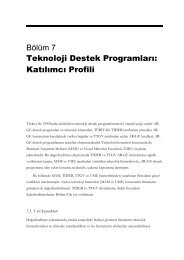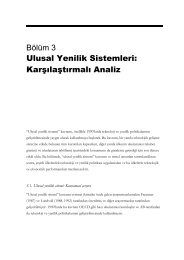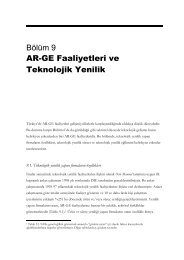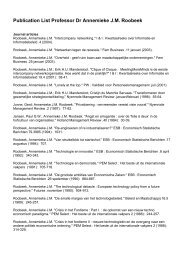Eleventh Five Year Plan
Eleventh Five Year Plan
Eleventh Five Year Plan
Create successful ePaper yourself
Turn your PDF publications into a flip-book with our unique Google optimized e-Paper software.
Nutrition and Social Safety Net 1334.1.21 The state of PEM has shown little no or signsof improvement over several decades. It is in thiscontext that the Minimum Support Price (MSP)and the Public Distribution System (PDS) becomesignificant.MINIMUM SUPPORT PRICE, FOOD PROCUREMENTPOLICY, AND THE PUBLIC DISTRIBUTION SYSTEM4.1.22 Food security is the outcome of both productionand distribution decisions. Agricultural productionissues are discussed in the ‘Agriculture’ chapterof the <strong>Eleventh</strong> <strong>Plan</strong> (Volume III). In fact, the GoIhas in 2007 taken the decision to introduce a FoodSecurity Mission, which will focus on increasingproduction of cereals and pulses. This chapter focuseson the distribution, affordability, and availabilityissues in respect of calories. This section discusseswhat changes need to happen in the PDS in order toboth improve food security as well as reduce fiscalsubsidies.Minimum Support Price (MSP)4.1.23 Foodgrains are procured at the MSP fixedby the government mostly in a small number ofgrain-surplus States in the north of India, whichare then transported across the country to deficitStates (the latter mostly in the south and west ofthe country). MSPs are fixed on rates recommendedby Commission for Agricultural Costs and Prices(CACP), which are set using mainly cost of cultivation.These grain stocks essentially supply the PDSof the country. Through the PDS, cereals are madeavailable to BPL households, as well as to AbovePoverty Line (APL) households—at differentialprices. There is a third category of beneficiaries—Antyodaya card holders. Under the Antyodaya AnnaYojana (AAY), 35 kg of foodgrains are being providedto the poorest of the poor families at the highly subsidizedrate of Rs 2 per kg for wheat and Rs 3 per kgfor rice.4.1.24 During the years of accumulation of stocksin the Central Pool until 2001–02, it was believedthat excess procurement was on account of thegovernment’s decision to fix the MSP for paddy andwheat in excess of the levels prescribed by the CACP.Grain stocks have declined since then.Stabilization4.1.25 Given the limited purchasing power of the poor,there is a need to contain cereal price rises. For thispurpose government maintains foodgrains bufferstocks through the Food Corporation of India (FCI).Stocks had reached to 256.17 lakh tonnes (rice) and324.15 lakh tonnes (wheat) for the year 2001–02. Butin 2007, the stocks of these two foodgrains fell to 131.71lakh tonnes (rice) and 45.63 lakh tonnes (wheat),respectively.4.1.26 To achieve the cereal price stabilization objectiveof PDS, food stocks with FCI should be at areasonable level. In recent years, both procurementand stocks with FCI have tended to fall. If the needs ofprocurement to maintain adequate stocks requires procurementprices to be higher than MSP, a transparentmechanism is needed that enables government toundertake commercial purchases at prices comparableto those paid by private traders. This could be doneif the procurement price (i.e. MSP plus bonus) wasannounced at the beginning of the purchase season,along with a procurement target in terms of quantity.After the procurement target was met, the bonus wouldbe suspended. However, if procurement quantities,even with bonus are not met, FCI should be able totender from both domestic as well as internationalmarkets, after standard procurement operations, tomake up the deficit to maintain stocks with the FCI.Decentralized Procurement4.1.27 Unlike the mid-1990s, cereal procurement wasearlier concentrated in a few northern States. However,under the decentralized procurement scheme introducedin 1997–98, the State Governments themselvesundertake direct purchase of paddy and wheat andprocurement of levy rice on behalf of the GoI. Purchasecentres are opened by the State Governments andtheir agencies as per their requirements. The StateGovernments procure, store, and distribute foodgrainsunder Targeted Public Distribution System (TDPS)and other welfare schemes. In the event of the totalquantity of wheat and rice thus procured fallingshort of the total allocation made by the CentralGovernment, FCI meets the deficit out of the CentralPool stocks. Under this scheme, State-specific economiccost is determined by the GoI and the difference




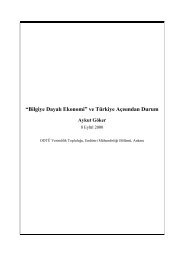
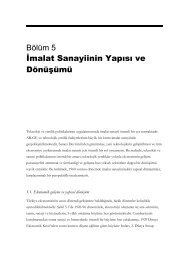
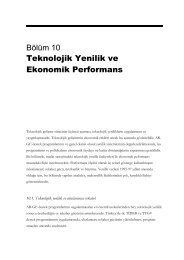
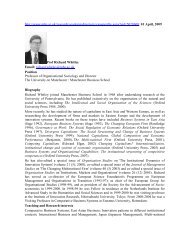

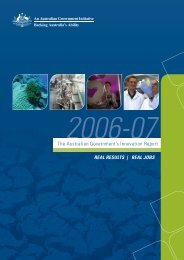
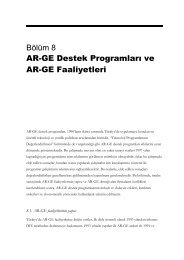

![[Tam] Uygula[ya] - Bilim, Teknoloji ve Ä°novasyon Politikaları TartıÅma ...](https://img.yumpu.com/36820041/1/184x260/tam-uygulaya-bilim-teknoloji-ve-anovasyon-politikalara-tartaama-.jpg?quality=85)
